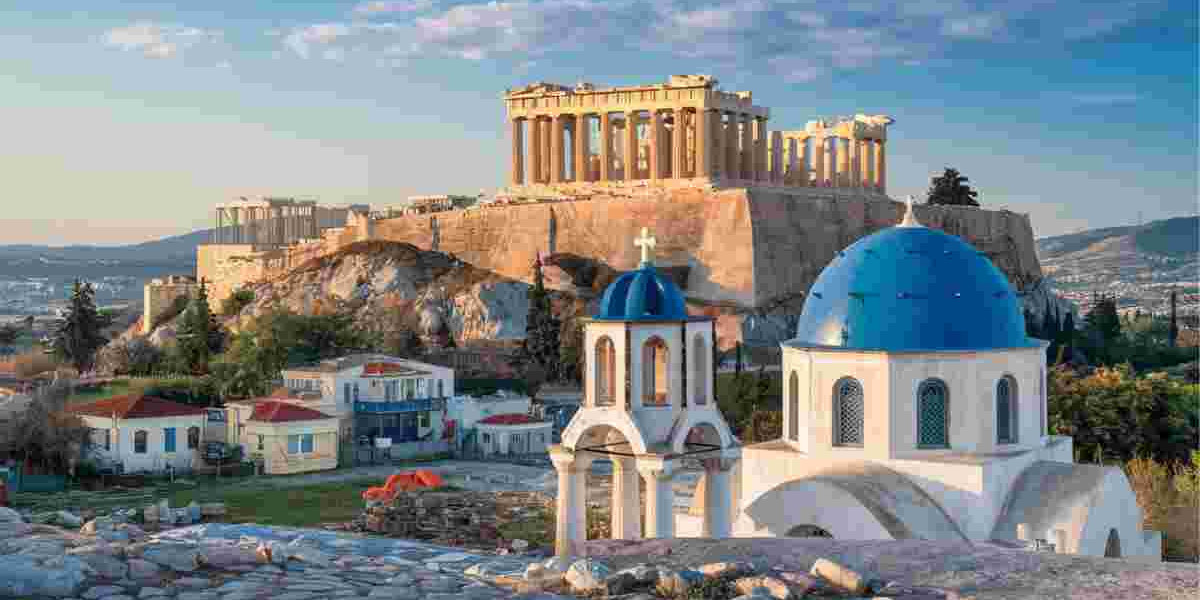Greece is known for its rich history, beautiful landscapes, and stunning monuments. These monuments have stood the test of time and continue to captivate visitors from all over the world. In this article, we will explore some fascinating facts about Greece, especially focusing on its famous monuments that reflect its ancient and modern heritage.
Introduction
Greece is often referred to as the cradle of Western civilization, and its monuments are living testaments to its glorious past. From the majestic Parthenon to the ancient Temple of Apollo, these sites tell stories of Greece's power, culture, and influence. In this article, we will uncover some intriguing facts about Greece and its iconic monuments, providing a glimpse into the country's history.
The Parthenon: A Symbol of Ancient Greece
One of the most famous monuments in Greece is the Parthenon, located on the Acropolis in Athens. The Parthenon was dedicated to Athena, the goddess of wisdom and war, and it is considered the pinnacle of Doric architecture. This monument, built between 447 and 438 BC, was originally a temple, but it has served various purposes over the centuries, including as a Christian church and a mosque.
A fascinating fact about Greece and the Parthenon is that the building was constructed with slight optical illusions to make it appear perfectly straight. The columns are slightly tilted, and the base of the temple is slightly curved. These subtle design tricks help correct any distortion when viewed from a distance.
The Temple of Apollo: Mystical and Historic
Another remarkable monument in Greece is the Temple of Apollo at Delphi, a UNESCO World Heritage site. This temple was once the site of the famous Oracle of Delphi, where people from all over the ancient world came to seek prophecies from the priestess Pythia. The temple's ruins still stand proudly in the stunning mountain landscape, offering a glimpse into the spiritual importance of Delphi.
A key fact about Greece is that Delphi was considered the center of the world in ancient Greek mythology, marked by the omphalos, or "navel of the world." The temple was built in the 6th century BC, and its rich history is tied to the rise of the ancient Greek city-states.
The Acropolis of Rhodes: A Unique Medieval Monument
The Acropolis of Rhodes is a different kind of monument. While many of Greece’s famous monuments are ancient, the Acropolis of Rhodes is a blend of medieval and ancient history. Located on the island of Rhodes, this ancient site was the home of the famous Colossus of Rhodes, one of the Seven Wonders of the Ancient World.
Although the Colossus no longer stands, the Acropolis of Rhodes remains a popular tourist attraction. A fact about Greece is that the Colossus was a giant bronze statue built to celebrate the island’s victory over Cyprus in 305 BC. It was said to stand 33 meters high, making it one of the tallest statues of the ancient world.
Ancient Olympia: Birthplace of the Olympic Games
Ancient Olympia is another fact about Greece that has left a lasting mark on history. This is where the ancient Olympic Games were first held in 776 BC. The ruins of the ancient stadium, temples, and athletic training areas still remain. The Temple of Zeus in Olympia housed one of the Seven Wonders of the Ancient World: a colossal statue of Zeus, created by the sculptor Phidias.
The Olympic Games were originally a religious festival to honor Zeus, and they were held every four years. These games continued for over a thousand years before they were banned by the Roman Emperor Theodosius in 393 AD. The modern Olympic Games, revived in 1896, owe their origins to this ancient tradition.
The Meteora: Monasteries in the Sky
Meteora, a UNESCO World Heritage site, is another fascinating fact about Greece. Located in central Greece, Meteora is famous for its monasteries perched atop towering rock formations. These monasteries were built by monks in the 14th century and offer both a spiritual and architectural marvel.
The monasteries of Meteora were constructed on natural rock towers that rise dramatically from the earth, providing an isolated and serene place for religious contemplation. The monks used these towering cliffs for protection during times of war. Today, six active monasteries still stand, and Meteora is a popular destination for tourists seeking a unique combination of nature, history, and spirituality.
The 1700s-1800s: A Period of Transformation
In the 1700s and 1800s, Greece was undergoing significant change. During this time, Greece was part of the Ottoman Empire, and many of its monuments were influenced by Ottoman architecture. However, the period also marked the beginning of the Greek War of Independence (1821-1829), which ultimately led to the formation of modern Greece.
During this period, many ancient monuments were rediscovered and restored as part of a movement to reclaim Greece’s cultural heritage. The facts about Greece from this time show how the country transitioned from an Ottoman-controlled region to an independent nation, and how its ancient monuments played a role in the national identity that was being formed.
Conclusion
Greece’s famous monuments are not just tourist attractions; they are the heart of the country’s history and culture. From the ancient temples and stadiums to the towering monasteries and medieval ruins, each monument tells a story of Greece’s glorious past. These fascinating facts about Greece reveal how the country’s rich history continues to captivate and inspire people from all over the world.
Whether you’re marveling at the Parthenon’s architectural genius or exploring the ancient ruins of Olympia, Greece’s monuments provide a tangible connection to the past. So, the next time you visit Greece, take the time to appreciate the incredible history that these monuments represent and the stories they tell about this remarkable country.








